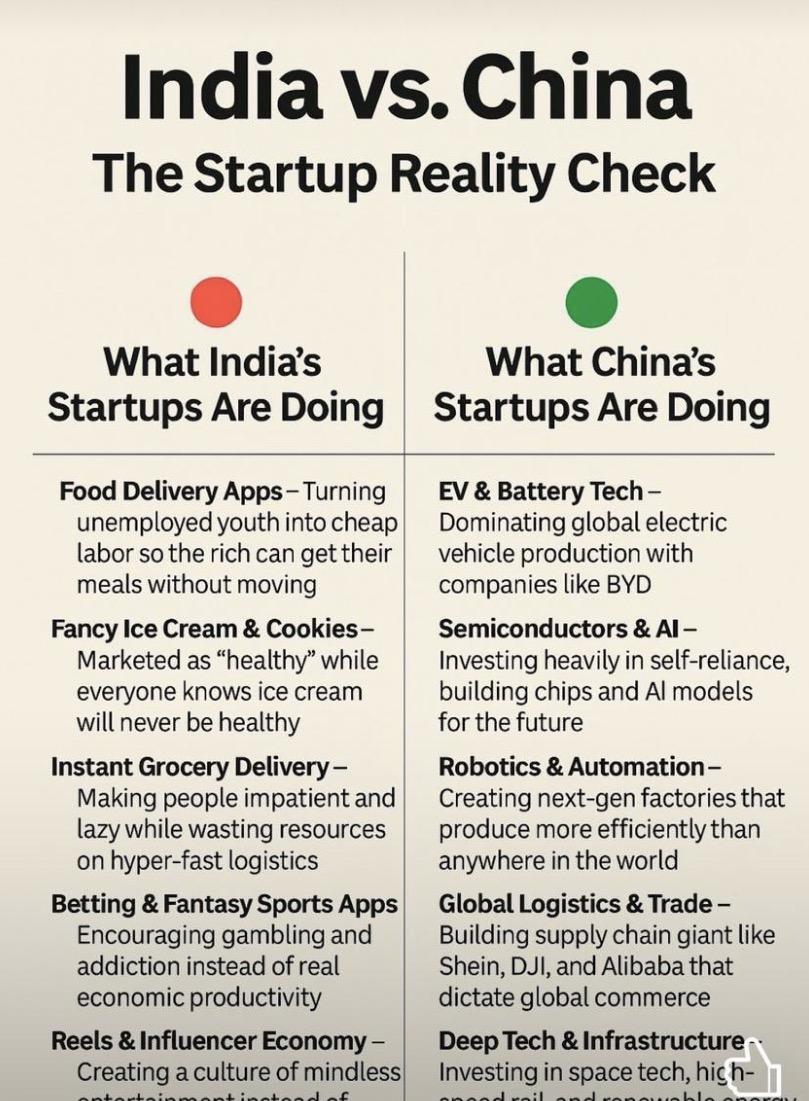Indian startups have gotten a reality check, and from the Union Commerce Minister himself.
Piyush Goyal, India’s Union Minister of Commerce and Industry, has asked Indian startups to be more innovative like their Chinese counterparts. Speaking at the Startup Mahakumbh, he used a viral social media post that compared the Indian and Chinese startup ecosystems to make his point.

“Should we aspire to be (better), or are we going to be happy being delivery boys and girls?” Piyush Goyal said. “What are India startups of today—we are focused on food delivery apps, turning unemployed youth into cheap labour so the rich can get their meals without moving out of their house,” he added.
“Dukaandari ka hi kaam karna hai ya one of scale, to make a mark in the world? (Do we want to run small shops or do we want to scale to make a mark globally)” he said.
“Against that, what do Chinese startups do—work on developing electric mobility, battery technology, and with that they are today dominating the electric mobility ecosystem,” he said. “Only 1,000 startups in India’s deep-tech space is a disturbing situation,” he added.
“We are very proud of what India has done but are we the best in the world as yet? Not yet,” Goyal said.
The slide that Goyal shared had criticized many of the popular Indian startup themes like food delivery apps, quick groceries, reels and influencer economy, and “healthy food”. The slide criticized these as frivolous and of using poor Indians to turn the rich impatient and lazy. In contrast, the slide said that Chinese startups were working on Electric Vehicles and battery technology, semiconductors and AI, robotics and deep tech. It added that China had created global high-tech brands like BYD and Shein, which India hadn’t yet been able to.

Goyal has finally called out the biggest unspoken truth of the Indian startup ecosystem — most Indian startups are operations-heavy, and have made little or no technical innovations. This ops-heavy nature — think Flipart, Zomato or the bevy of delivery apps — has meant that these businesses haven’t been able to scale outside India, and remain confined to Indian shores. On the other hand, Chinese startups are solving deep technical problems — DeepSeek created a new technique of making powerful LLMs run cheaply, BYD is selling more EVs than Tesla, and Baidu is deploying its self-driving cars in Dubai. In contrast, Indian startups are spending their time and effort looking to cut delivery times of groceries from 10 minutes to 8 minutes. Goyal’s reality check might seem harsh, but the Indian startup ecosystem would do well to heed his words — India would need to change how it approaches startups if it plans to remain competitive with its surging eastern neighbour.